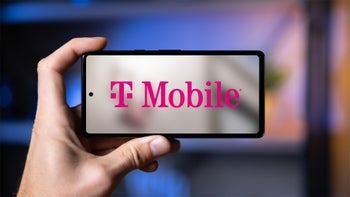AT&T is rebuilding its network from the ground up – what that means for you and your wallet
The carrier's Chief Technology Officer Jeremy Legg has an ambitious program for 2025 and beyond.

AT&T is in the middle of one of the most ambitious revamps in its history, tearing apart decades of legacy infrastructure and replacing it with software-driven systems that could change how millions of customers use and pay for their service.
The stakes are high. Customers could enjoy faster, more reliable connections and potentially lower prices. If it stumbles, the transition could mean service hiccups, fewer product choices, and bills that don't fall as much as expected. Either way, your phone and home internet are about to become more closely intertwined than ever.
At the KeyBanc Technology Forum this month, Chief Technology Officer Jeremy Legg described the effort as a once-in-a-career opportunity to rebuild AT&T's entire network from the ground up.
The plan centers on convergence – merging AT&T's wireline and wireless businesses so they run on a single, unified system. For consumers, that means your home broadband and mobile service could soon be delivered over the same underlying network. The goal is simple: to lower costs for the company. But for customers, the real question is whether that translates into lower bills or new headaches.
One part of the rebuild involves replacing the proprietary hardware that has powered AT&T's central offices for decades. Instead of racks of aging gear, the company is rolling out Linux-based compute systems and software-defined networking. Updates that once required dispatching engineers with new routers can now be handled in the cloud, cutting costs and speeding up service changes.
AT&T says this modernization not only improves efficiency but also allows it to launch new products quickly, such as cybersecurity protections that customers can add directly to their accounts without waiting for hardware installations.
The company is also retiring legacy services like DSL and traditional voice lines, replacing them with modern alternatives. For some customers, that could mean saying goodbye to some familiar but outdated products. For others, it may lead to faster speeds, better bundles, and more personalized offers. Legg suggested that retail stores, customer service centers, and AT&T's apps will soon be able to deliver tailored recommendations based on each customer's history – from device upgrades to outage experiences – something the company has struggled to do in the past.
For your wallet, the story cuts both ways. On one hand, AT&T's drive to reduce costs across its massive network could create room for more competitive pricing. Bundling home and mobile service together may offer discounts that aren't available today, and a streamlined network could reduce fees tied to maintenance and upgrades.
On the other hand, convergence could also tie households more tightly to AT&T, limiting the flexibility to mix and match providers. Customers may also face short-term disruptions as the company decommissions old services and migrates millions onto new systems.
The plan centers on convergence – merging AT&T's wireline and wireless businesses so they run on a single, unified system. For consumers, that means your home broadband and mobile service could soon be delivered over the same underlying network. The goal is simple: to lower costs for the company. But for customers, the real question is whether that translates into lower bills or new headaches.
And so what we're in the midst of doing right now is, actually converging our wireline and wireless networks together, so that as we think about how we amortize the cost of that, we're doing it over two businesses versus one, and historically, those have been pretty separate networks and increasingly now we're actually unifying all of that.
– AT&T CTO Jeremy Legg, August 2025
One part of the rebuild involves replacing the proprietary hardware that has powered AT&T's central offices for decades. Instead of racks of aging gear, the company is rolling out Linux-based compute systems and software-defined networking. Updates that once required dispatching engineers with new routers can now be handled in the cloud, cutting costs and speeding up service changes.
Will AT&T succeed?
Yes, I believe so.
27.18%
Yes, but it'll take time.
42.07%
I doubt it.
21.04%
No, I'm sure things will get worse.
9.71%
AT&T says this modernization not only improves efficiency but also allows it to launch new products quickly, such as cybersecurity protections that customers can add directly to their accounts without waiting for hardware installations.
The company is also retiring legacy services like DSL and traditional voice lines, replacing them with modern alternatives. For some customers, that could mean saying goodbye to some familiar but outdated products. For others, it may lead to faster speeds, better bundles, and more personalized offers. Legg suggested that retail stores, customer service centers, and AT&T's apps will soon be able to deliver tailored recommendations based on each customer's history – from device upgrades to outage experiences – something the company has struggled to do in the past.
On the other hand, convergence could also tie households more tightly to AT&T, limiting the flexibility to mix and match providers. Customers may also face short-term disruptions as the company decommissions old services and migrates millions onto new systems.
Follow us on Google News














Things that are NOT allowed:
To help keep our community safe and free from spam, we apply temporary limits to newly created accounts: